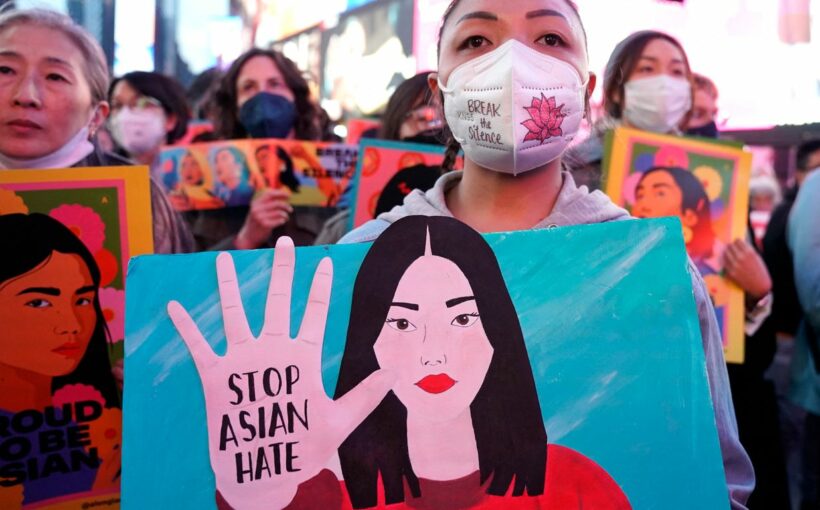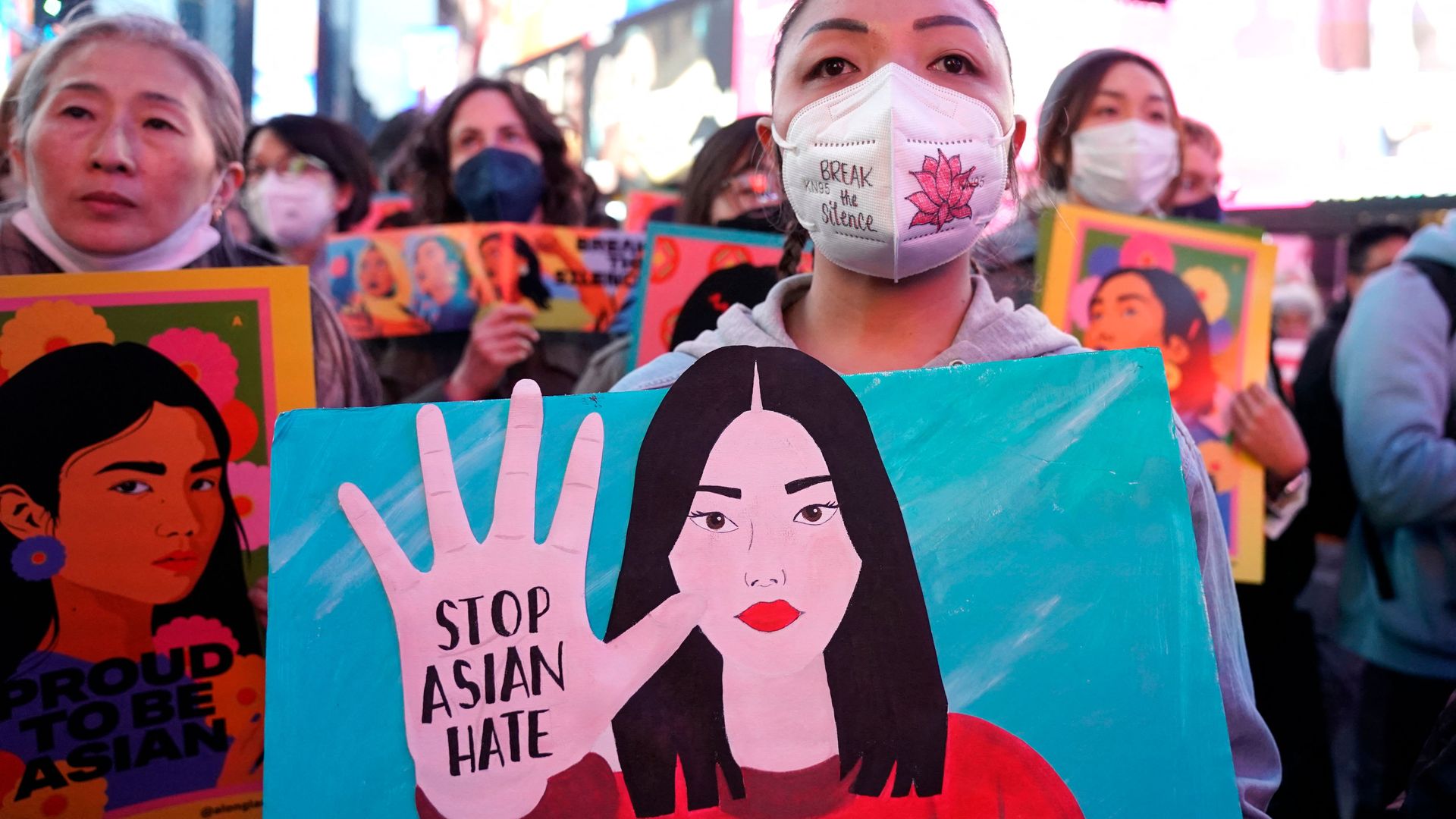A rally in New York City on March 16 on the first anniversary of the Atlanta spa shootings. Photo: Timothy A. Clary/AFP via Getty Images
Asian Americans are adjusting to a new long-term reality as the number of anti-Asian hate crimes and incidents across the U.S. continue to climb.
The big picture: The anti-Asian hate crisis has given AAPIs new visibility, but the harassment and violence haven't abated. The share of Americans who wrongly blame COVID on people of Asian descent grew between 2021 and 2022, fueling anxiety about sustained attacks as the world navigates the third year of the pandemic.
By the numbers: Between March 2020 and March 2022, Stop AAPI Hate documented over 11,400 self-reported anti-AAPI hate incidents, according to its latest report released Wednesday.
- 67% of reported incidents involved harassment, such as verbal or written hate speech and discriminatory gestures; 17% involved physical assault, and 16% took the form of avoidance or shunning.
- Public settings (40%) and businesses (27%) saw the largest proportions of reported incidents. Nearly 1 in 10 occurred on public transit.
- 43% of the incidents involved Chinese people, the largest percentage among all reported ethnic groups.
- Women were two times more likely than men to report a hate incident.
- California, which has the largest AAPI population in the U.S., led the states with the largest number of reported incidents, at over 4,000. New York came in second, with about 1,800.
Context: Though the majority of these incidents do not constitute hate crimes and would not be investigated or prosecuted as such, they cause "significant fear and trauma," according to Stop AAPI Hate, which was founded in response to the surge in violence.
- A nationwide survey conducted by Stop AAPI Hate and the Edelman Data & Intelligence Team found that one in five Asian Americans and one in five Pacific Islanders experienced a hate incident in 2020 or 2021.
- Almost half of Asian Americans who reported a hate incident to Stop AAPI Hate also reported depression or anxiety, per Wednesday's report. Nearly three-quarters said discrimination is their greatest source of stress, even ahead of health concerns.
What they're saying: The latest report "reflects what is the new reality for AAPIs, that hate was not simply short-term or related only to COVID," Manjusha Kulkarni, co-founder of Stop AAPI Hate and executive director of AAPI Equity Alliance, told Axios.
- "We're seeing across the board really an upsurge in white supremacy and the ways in which it's wreaking havoc on our communities."
- "This is not a temporary problem, but one that is seemingly long-term and is going to require more permanent solutions," she added, citing the need for a national civil rights infrastructure and expanded mental health services.
Worth noting: Several states have enacted bills mandating AAPI history in schools as part of an effort to combat ignorance and hate. Some have also set aside funding for AAPI-serving organizations.
Go deeper: Asian American-led Unity March a reminder of community’s history of activism
Source: Read Full Article

